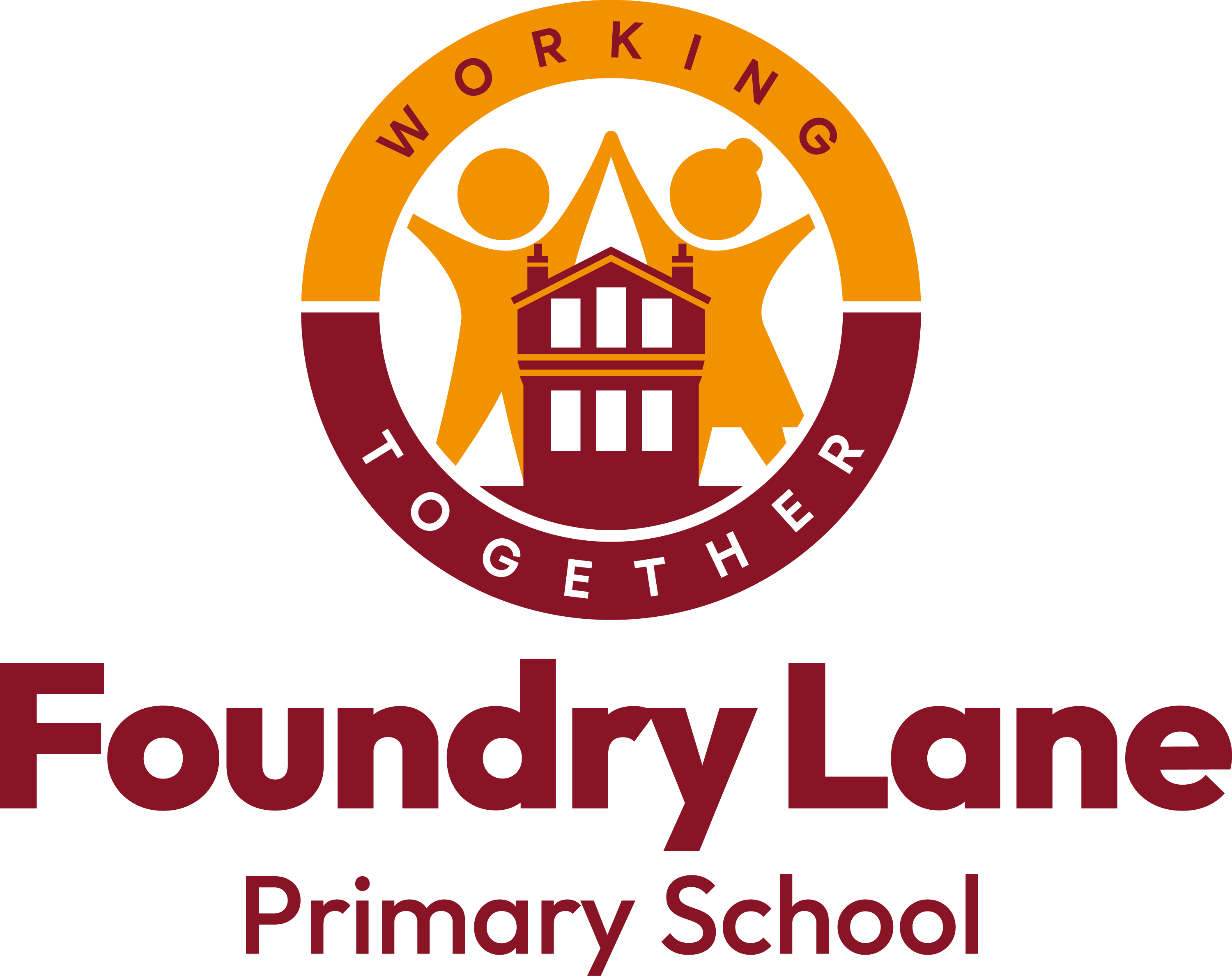Spanish
Year 3 using numbers and colours to describe their monsters!
-
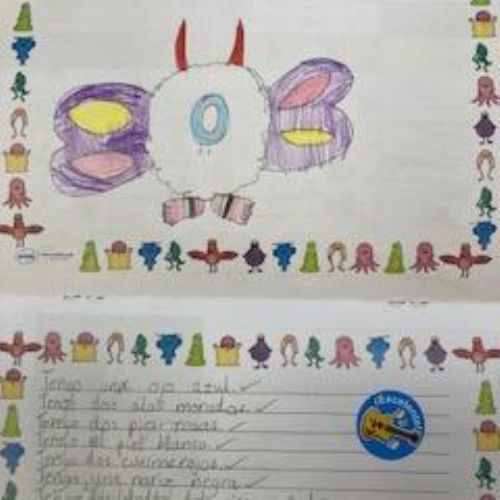
b7084f35-cef8-462d-8c9b-56607ae6e21f1x1
-
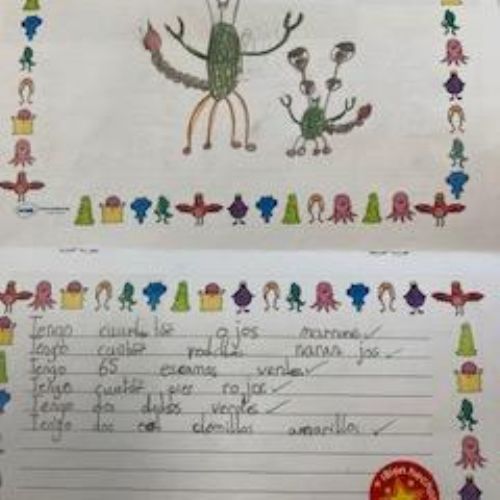
bbc5cb49-4a9b-419c-816b-b6b8401f40a21x1
-
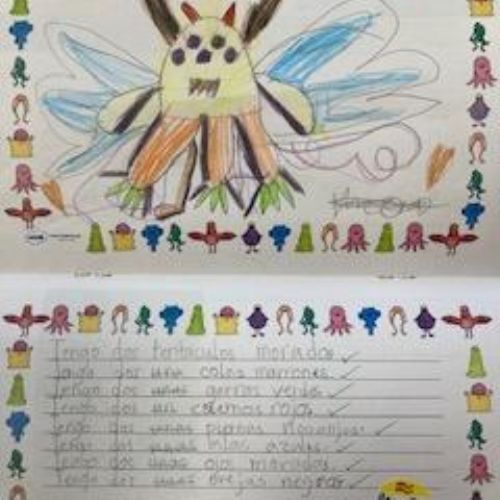
08004ad3-a386-495d-addc-194de1921c8f1x1
-
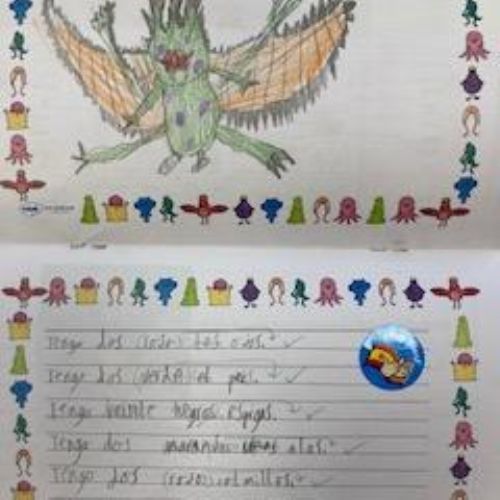
cd1b4be8-f468-4d12-89fa-32f5a100b42d1x1
-
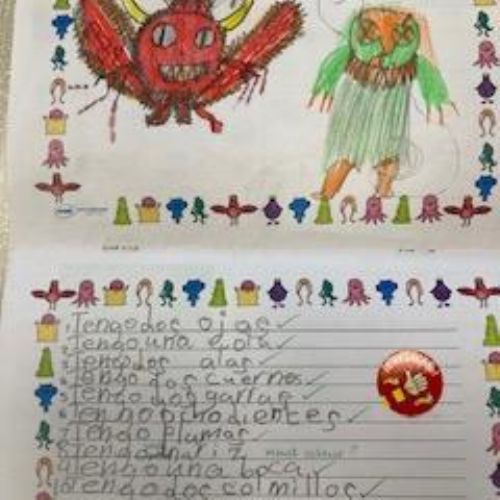
7e135041-48df-4210-a470-5168436ae3801x1
-
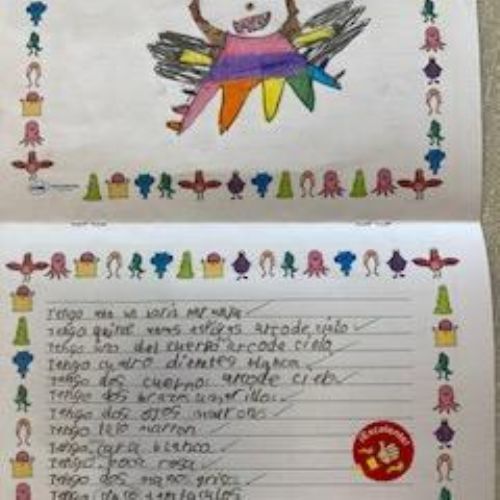
2fa81849-7c96-4ef0-a1c9-fea27940959d1x1
-
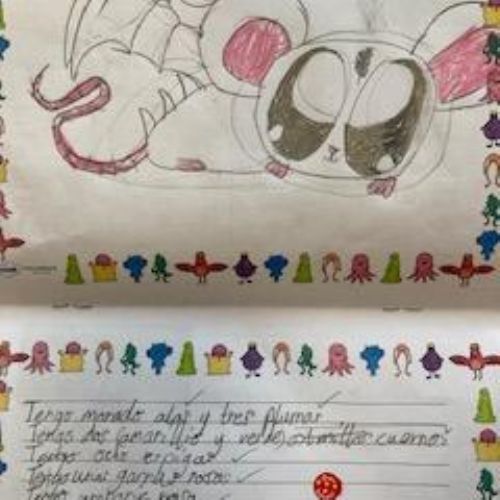
42256617-3244-4262-854a-6bcb91a5577a1x1
-
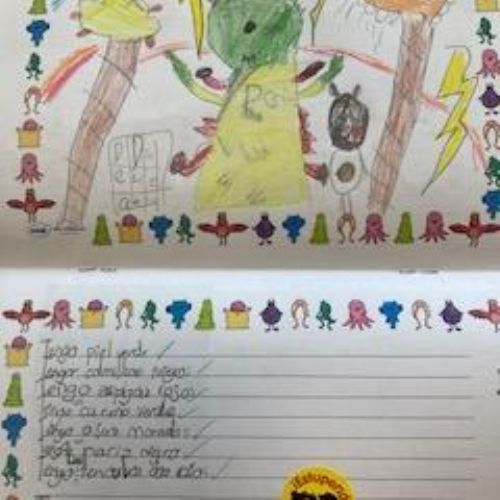
f6447f35-3157-49ec-aff5-7d509de0dd131x1
El Tiempo - The weather according to Year 5!
-
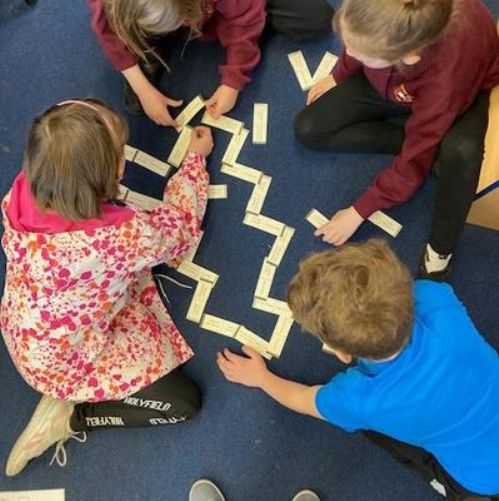
be788bbe-cf30-4792-81c6-df0c4e4d58861x1
-
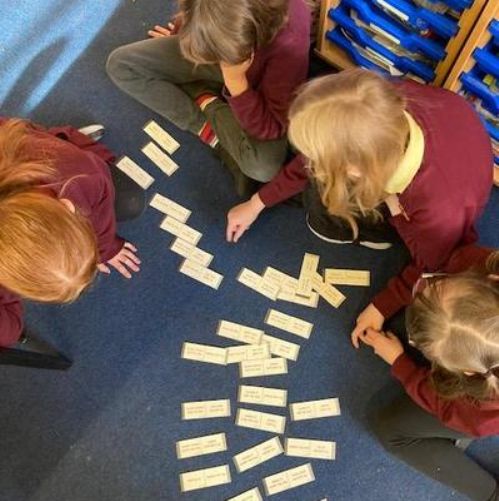
c8fe0d8a-90a0-406f-a109-dff3e5b7d4f01x1
-
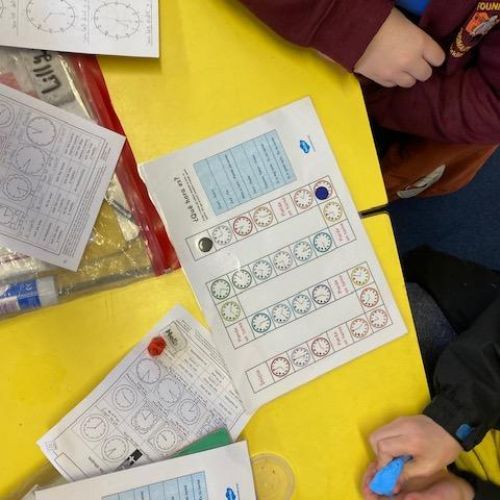
b3343d9d-426f-4bf9-b984-953ba3b8a9981x1
-
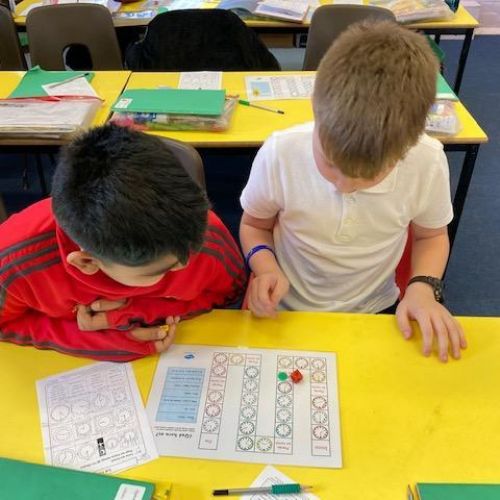
ad05e96b-69e4-403c-a175-2e2a36c9050d1x1
-
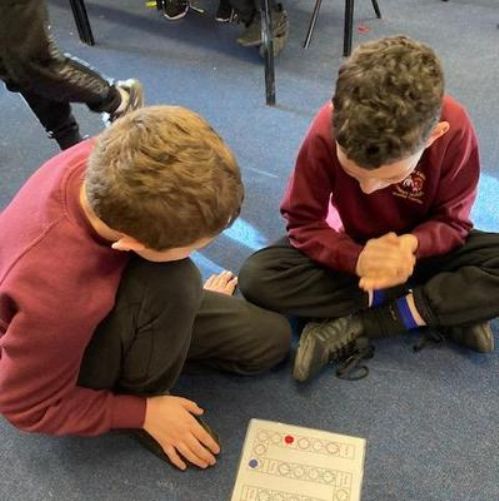
939418fe-db5e-4b8e-b83e-1acbe981552b1x1
-
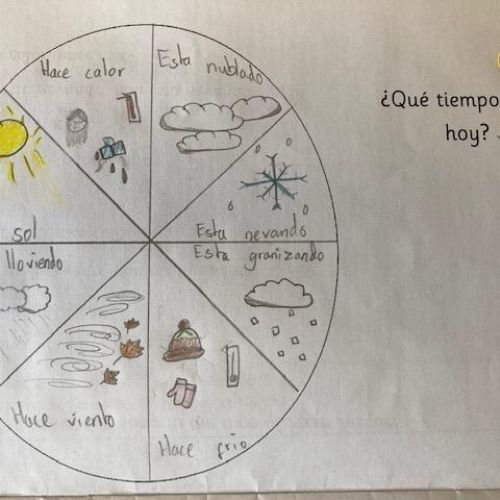
082b7286-2383-479d-b68b-eb821493e2a71x1
-
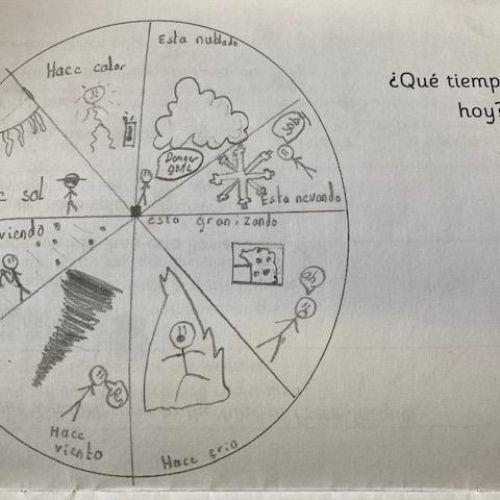
8e68136b-e95f-4881-b6f5-b08d7b64c5501x1
-
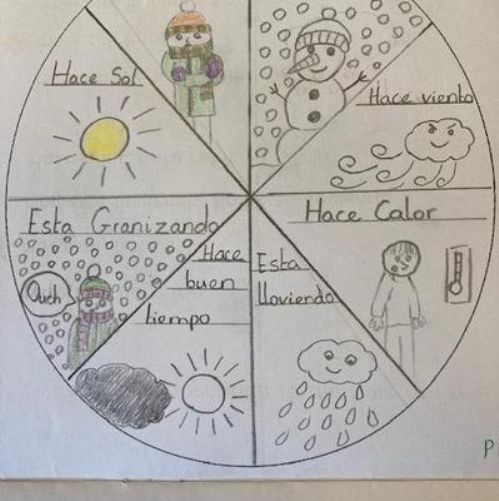
c6377fe1-de24-4d94-a3dc-b48b616fe9241x1
-
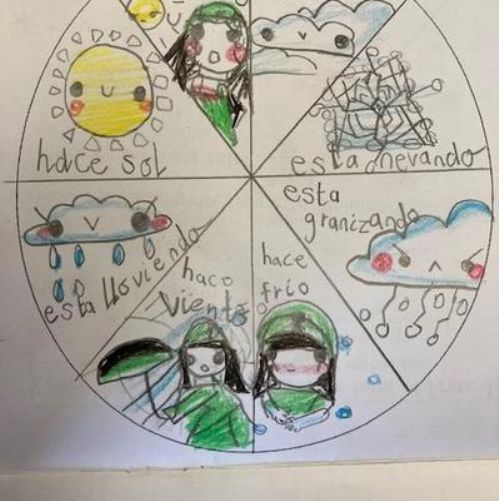
1f7235da-e180-4d1a-8a68-002b494375901x1
Feliz año nuevo
In Spain, on New Year’s Eve, people try to eat 12 grapes before the clock stops chiming midnight. If they manage to eat them all they will have a great New Year.
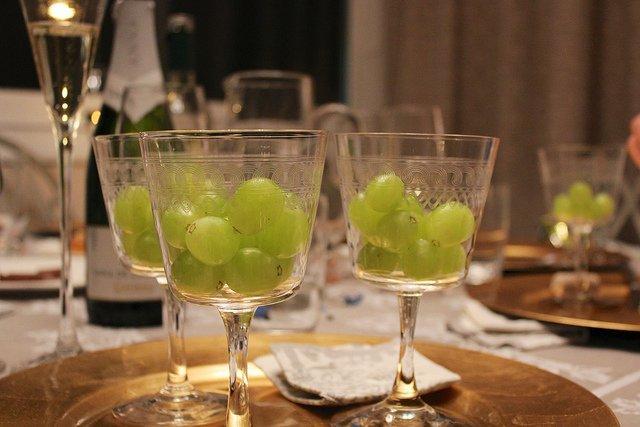
Children in Spain have to wait until 6th January to receive presents! They leave their shoes out the night before and if they have been good the 3 kings bring them gifts. If they’ve been naughty, the kings leave them coal!
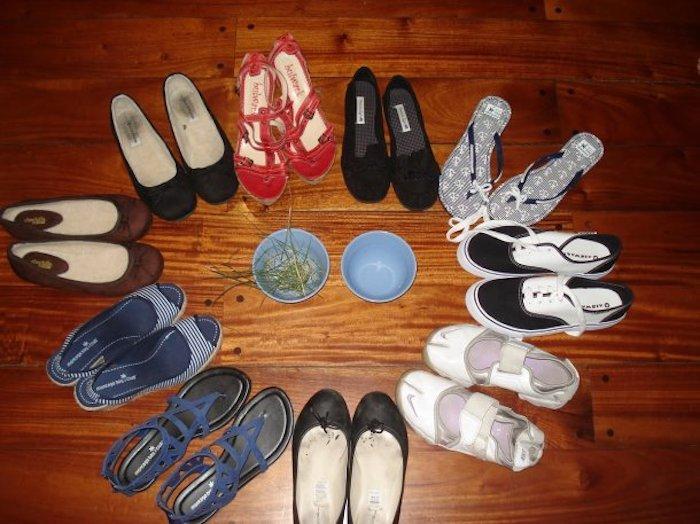
Un Roscón de Reyes is a traditional sweet cake eaten on the 6th January to celebrate the Three Kings’ Day. One person will find a bean in their slice! This means they are King or Queen for the day and wear a crown.

They also send Happy Kings’ Day cards. Look at the lovely examples the children made!
-
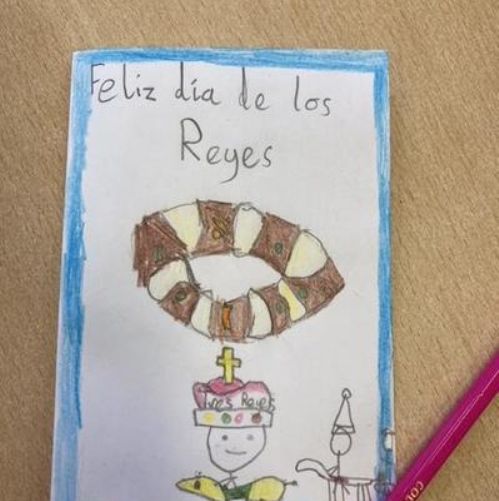
fd060720-1af9-48a7-98a2-4859e007b4691x1
-
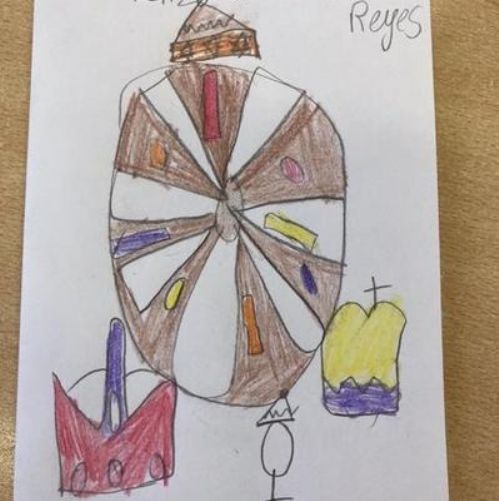
08459583-8345-4b8e-9bca-9c0e02502e3a1x1
-
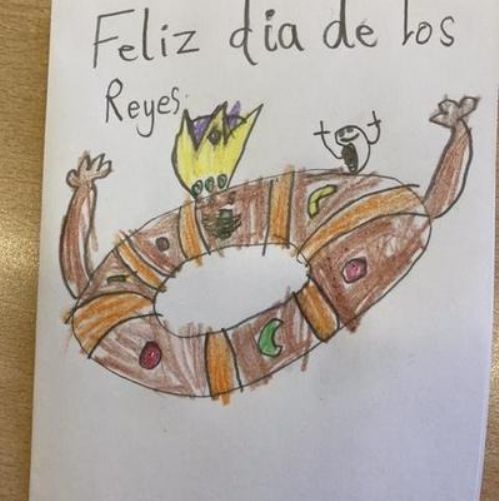
9fb7250f-a65d-47e7-ac29-52e82a936c6e1x1
-
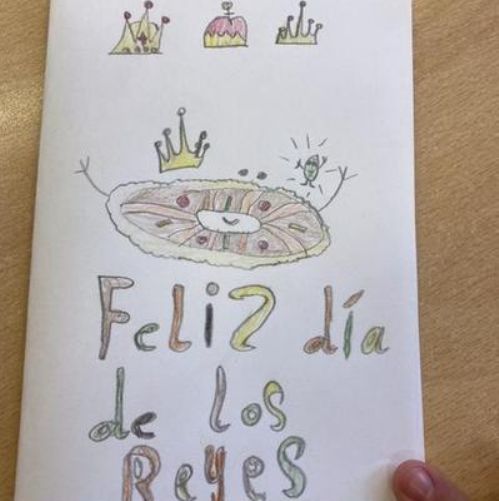
46055473-e982-4a87-8db7-228b28b289cd1x1
-
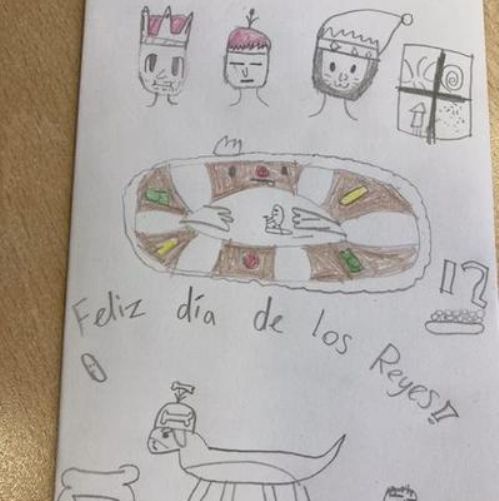
86eeae4d-32cd-46d5-b613-33876c76ec941x1
-
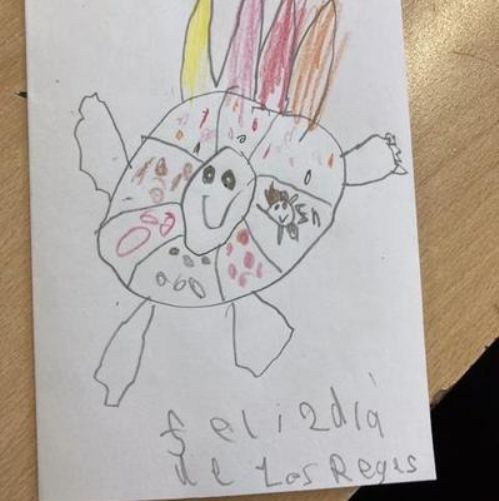
a34cbe1a-1b6a-4ff2-b06f-f24067f003d11x1
-
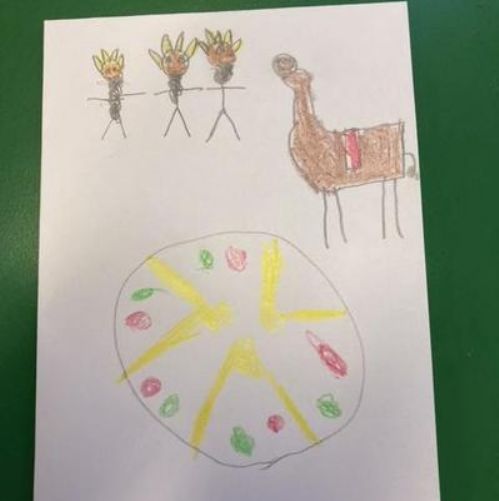
25f72ce3-f3bb-44ab-ad47-068318fc6ff71x1
-
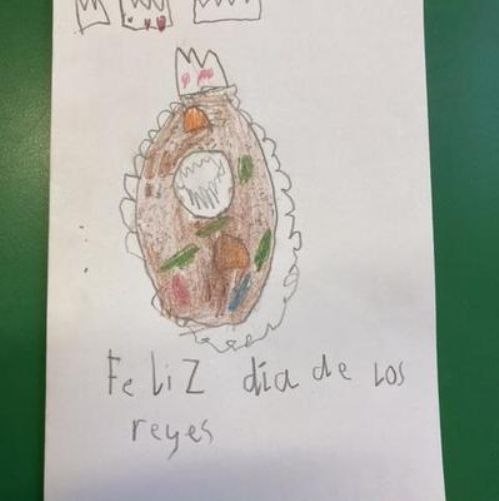
789dced3-6c70-4285-8c09-0b20d827aab51x1
-
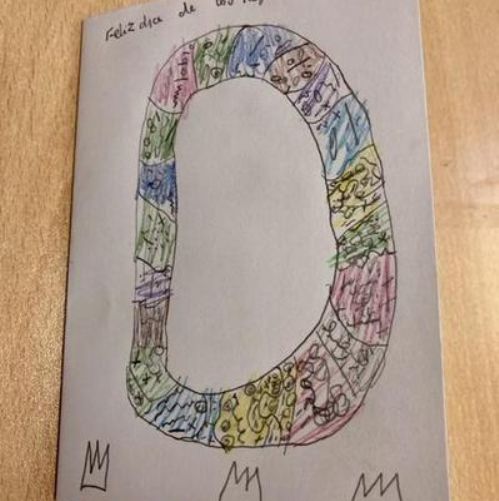
f69e9976-d399-47bf-b616-ce59d37529171x1
The Benefits of Learning
Spanish Tongue Twisters
Let’s talk about all the good things Spanish tongue twisters can do for our brains!
Train your short and long term memory:
Repetition is one of the most used forms of learning there is. It’s a very important skill to train and develop. And lucky for you, tongue twisters will make memory training feel as light as a Saturday morning cartoon! Practicing pronunciation makes our brains hold on to the info as we process it, and when we do it enough times, we learn it for good!
Improve pronunciation:
Spanish tongue twisters are great tools for pronunciation because of their higher-than-usual difficulty. Mastering tongue twisters means you need to be patient and sometime cope with frustration. They are great for practising specific vowels and consonants pronunciation.
Expand your vocabulary:
Spanish tongue twisters have words that you might not come across often in a conversation. Increase your word power!
Impress and Entertain:
We all know that you learn best when you’re having fun. Tongue twisters are entertaining to say, and funny to get wrong.
Year 3 are Tongue Twister experts!!
Can you say these Spanish tongue twisters quickly and clearly?
Year 3 have been using their Spanish vowel sounds to say them clearly, accurately, and more and more quickly.
Mi mamá me mima mucho.
My mum spoils me a lot.
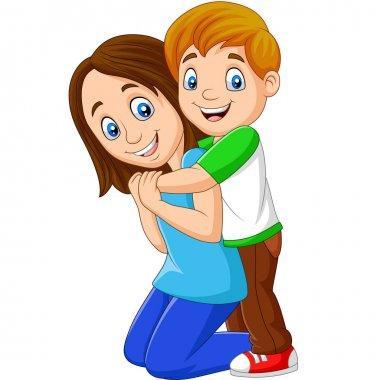
El bebé bebe bebidas con burbujas.
The baby drinks drinks with bubbles.

Who can be the clearest and the quickest in your family?
Make sure your vowel sounds are clear!
https://www.youtube.com/watch?v=HYdKeoSLPfc
https://www.youtube.com/watch?v=td-CgJHNF1U
Telling the time
The children in Year 5 have been learning to tell the time in Spanish. Most of them can tell the time to the hour and half past the hour. Some children can say quarter past, quarter to, and to the exact minute. Robyn, has explained what she does during her week and WHEN!
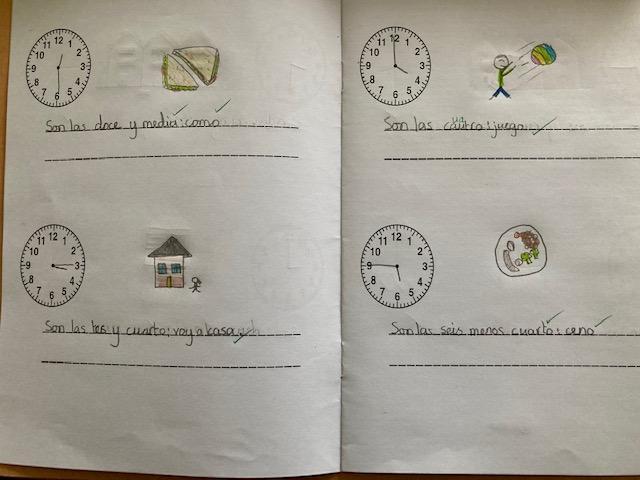
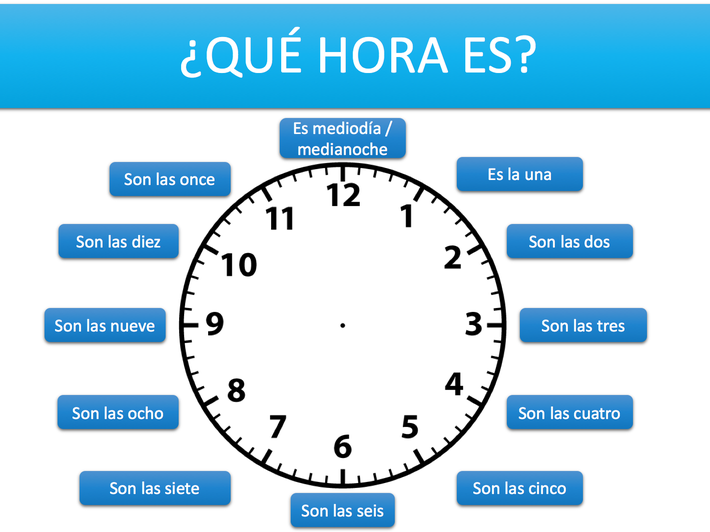
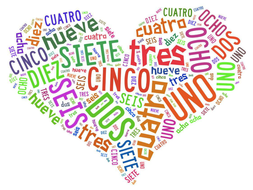
At Foundry Lane Primary School we believe all children should have the opportunity throughout Key Stage 2 to study a foreign language and develop their interest in the culture of other nations. They should have access to high quality teaching and learning opportunities, making use of native speakers and e-learning. From Year 3 to Year 5 children centre their learning on Spanish. Then in Year 6 apply their language learning skills to learning French.
By the end of Key Stage 2 most children should be able to sustain quite a long conversation in Spanish through a series of questions and answers. They also acquire some basic Spanish grammar alongside this.
|
Year 3 - so far... We know our Spanish vowel sounds. We can say: Hello! Goodbye! We can answer: How are you? What's your name? How old are you? We can describe ourselves using adjective including: colours, numbers and body parts.
|
Year 4 - so far... We can name the days and months. We can make our nouns and adjectives agree. We can read and rewrite in Spanish a familiar story like: The Very Hungry Caterpillar. We can ask: Where do you live? We can give directions. |
|
Year 5 - so far... We can ask: What is the time? What is the weather like? We are using larger numbers and learning about Spanish verbs.
|
Year 6 - in french... We can say: Hello! Goodbye! We can answer: How are you? What's your name? How old are you? We can describe ourselves using adjective including: colours, numbers and body parts.
|
Gradually reading and writing is introduced to the language learning
-
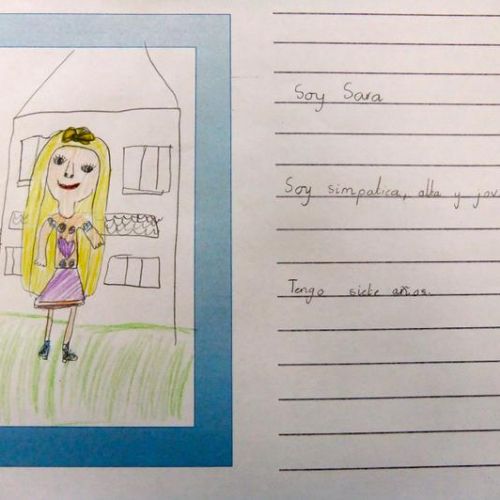
4ab2398e9427437c9615b4f0dbb992b31x1
-
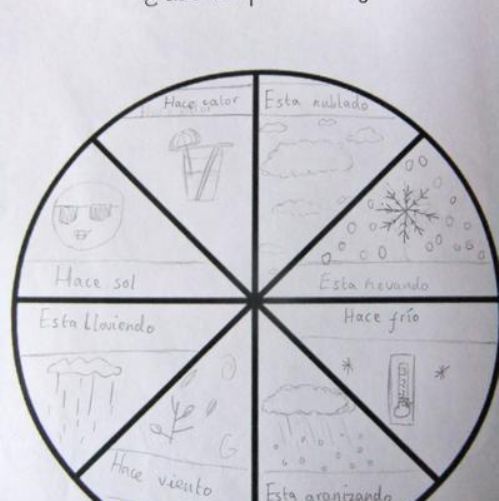
eabc3d7531c8413397be11575e764f331x1
-
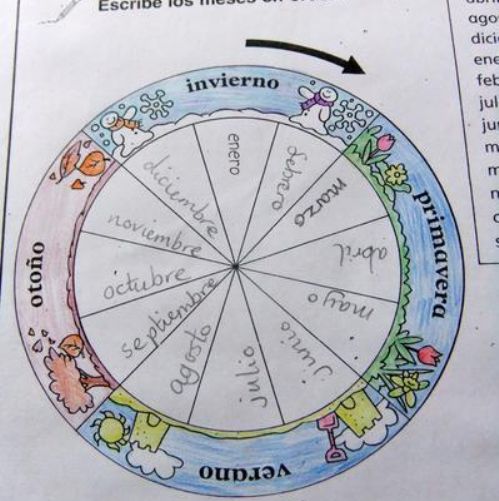
a6321c552ffe4f0dbd10bb7499d0eb961x1
-
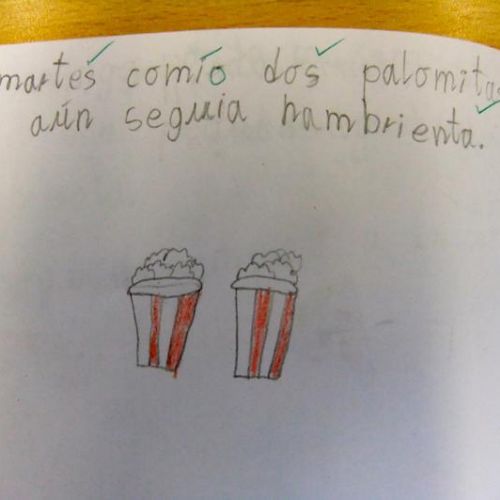
d1a5f7deb6ca4d688f8adb5ed81f63bb1x1
-
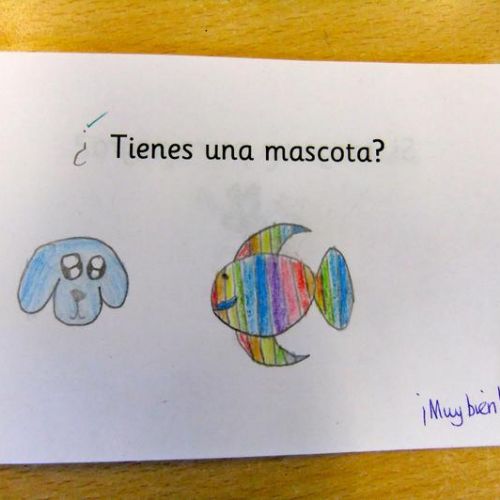
d2fec3d2ba3546a2bdf29216468e9d6a1x1
-
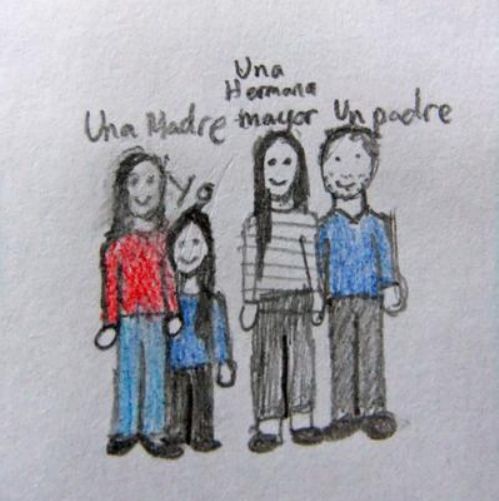
b1cf3d97c1c04f46b3452ccd1d37ea831x1
-
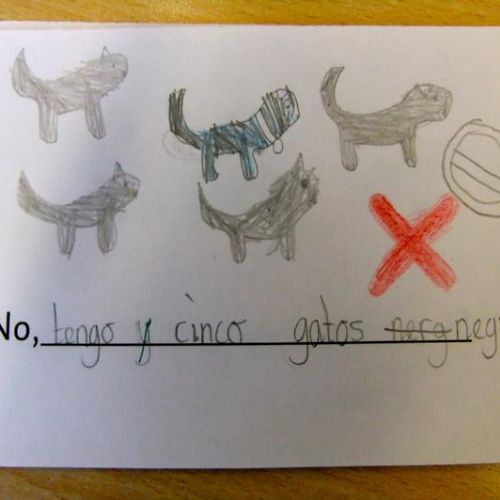
91b0a774b827444c848e7369b77da6b41x1
-
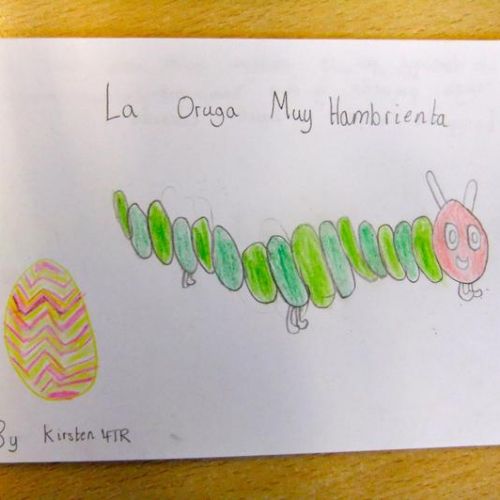
67bb7190068e4cce91ad15874aab71351x1
-
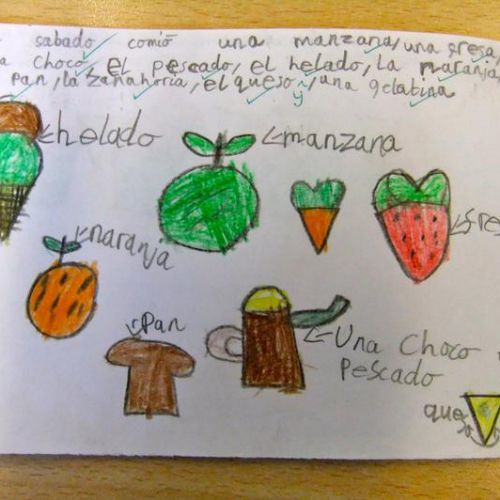
1423b0cd779145b38ce84ed993beac1b1x1
The Internet offers many opportunities for the children to consolidate their skills. Here are a few fun sites:
Spanish Vowel Sounds
https://www.youtube.com/watch?v=HYdKeoSLPfc
https://www.youtube.com/watch?v=td-CgJHNF1U
Numbers and Colours
https://www.youtube.com/watch?v=ZiNFXntWOJw
Days of the Week
https://www.youtube.com/watch?v=9j1ueJ_XdFM
Animals
https://www.youtube.com/watch?v=YwYckV5hLjI
Parts of the Body
https://www.youtube.com/watch?v=pOg6y-Q59eM
Telling the Time
